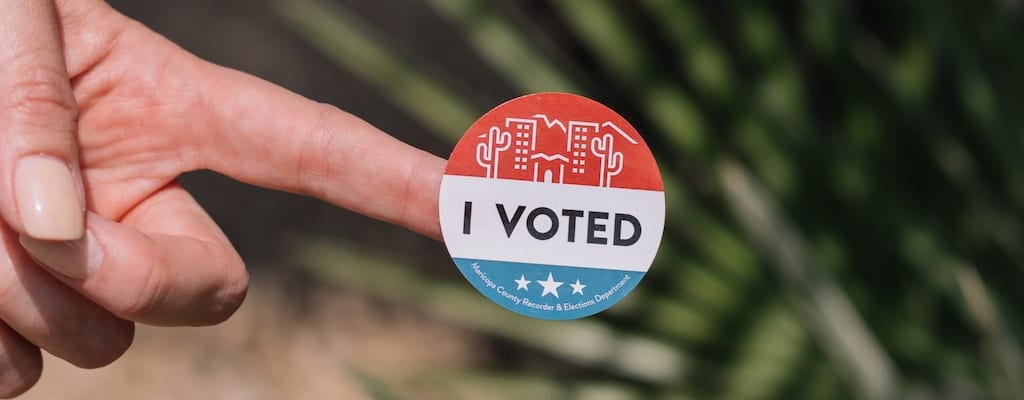get into one’s stride: Idiom Meaning and Origin
What does ‘get into one's stride’ mean?
The idiom "get into one's stride" means to become comfortable and confident in doing something, usually after a slow start or period of adjustment.

Idiom Explorer
The idiom "settle into" means to become comfortable or accustomed to a new situation or place. It implies a process of adjusting and finding one's place in a new environment or routine.
The idiom "land on one's feet" means to recover or be successful after a difficult or challenging situation. It suggests being able to adapt and find a positive outcome despite the circumstances.
The idiom "in stride" means to take something in one's stride or to handle it calmly and confidently without being affected by it.
The idiom "in the groove" means to be performing exceptionally well or in a state of optimal performance.
An idiom that means to gain momentum or build up force, often used in the context of a person or group gathering energy or enthusiasm for a task or goal.
The idiom "grow on" means to begin to like or enjoy something or someone gradually over time.
The idiom "go from strength to strength" means to continuously improve and become more successful over time. It describes a positive progression or development, typically in one's personal or professional life.
The idiom "get to grips with" means to become familiar with or understand something difficult or challenging. It implies taking control and actively engaging with the subject matter in order to overcome any obstacles or difficulties.
The idiom "get stuck in" means to start working on something with enthusiasm and determination, often in a hands-on or proactive manner.
The idiom "get on the stick" means to start acting quickly or to hurry up.
Embracing Your Inner Cadence
The idiom "get into one's stride" is a commonly used expression in English, particularly in the United States. It conveys the idea of finding one's rhythm or pace in a particular activity or situation.
The main characteristic of this idiom is its emphasis on the process of adaptation and adjustment. It suggests that there is a period of initial uncertainty or difficulty before achieving a comfortable and effective performance.
The word "stride" in this idiom refers to a person's manner of walking or movement. By extension, it also encompasses a broader sense of progress and forward motion. Therefore, "getting into one's stride" implies finding a comfortable pace and making steady progress in a particular activity.
This idiom is often used in contexts relating to performance, whether in sports, work, or artistic pursuits. It suggests that individuals need time to adjust and find their rhythm before they can reach their full potential.
An example of using this idiom is at the start of a race, where a runner may need to "get into their stride" before running at their desired pace. Similarly, a musician may need a few minutes to "get into their stride" before delivering a flawless performance.
The origin of the idiom "get into one's stride" is rooted in the physical act of walking or running. When someone walks or runs, they go through a process of finding their natural pace and rhythm. The same process applies to various activities, where individuals experience an initial period of adjustment before reaching a state of optimal performance.
This idiom reflects the universal experience of adapting and finding rhythm in different activities. It captures the idea of gradually attaining a comfortable pace and making progress towards desired goals.
Another related idiom is "in stride". This phrase is used to describe someone who is able to handle or cope with something smoothly, without being affected by it. It suggests that a person is able to take things in their stride and maintain their composure.
When someone is able to take things "in stride", it means they are not easily thrown off or disturbed by unexpected events or challenges. They are able to adapt quickly and continue moving forward without being hindered by setbacks or obstacles.
For example, if someone receives criticism for their work, they can take it "in stride" by using it as an opportunity for improvement rather than feeling discouraged. They are able to maintain a positive attitude and continue progressing towards their goals.
Another related idiom is "find one's feet". This phrase is used to describe the process of becoming familiar with a new situation or environment and gaining confidence in one's abilities.
When someone "finds their feet", it means they have become comfortable and confident in a new job, role, or any other situation that initially seemed unfamiliar or challenging. They have settled into a routine and are able to navigate the situation with ease.
For example, a person starting a new job may initially feel unsure and overwhelmed. However, with time and experience, they begin to find their feet and become more self-assured in their abilities.
The idiom "get into one's stride" conveys the idea of finding one's rhythm or pace in a particular activity or situation. It emphasizes the process of adaptation and adjustment, suggesting that individuals need time to adjust and find their rhythm before they can reach their full potential. It is often used in contexts relating to performance and reflects the universal experience of adapting and finding rhythm in different activities. The related idioms "in stride" and "find one's feet" further enhance the understanding of the process of adaptation and confidence-building in various situations.
Example usage
Examples of how the idiom "get into one's stride" can be used in a sentence:
- After a few minutes of warming up, the runner got into their stride and effortlessly completed the race.
- At the beginning of the semester, the student struggled with time management, but by the third week, they finally got into their stride and began submitting assignments on time.
- Initially, the new employee felt overwhelmed with the workload, but after a month on the job, they finally got into their stride and became highly productive.
More "Adaptability" idioms



